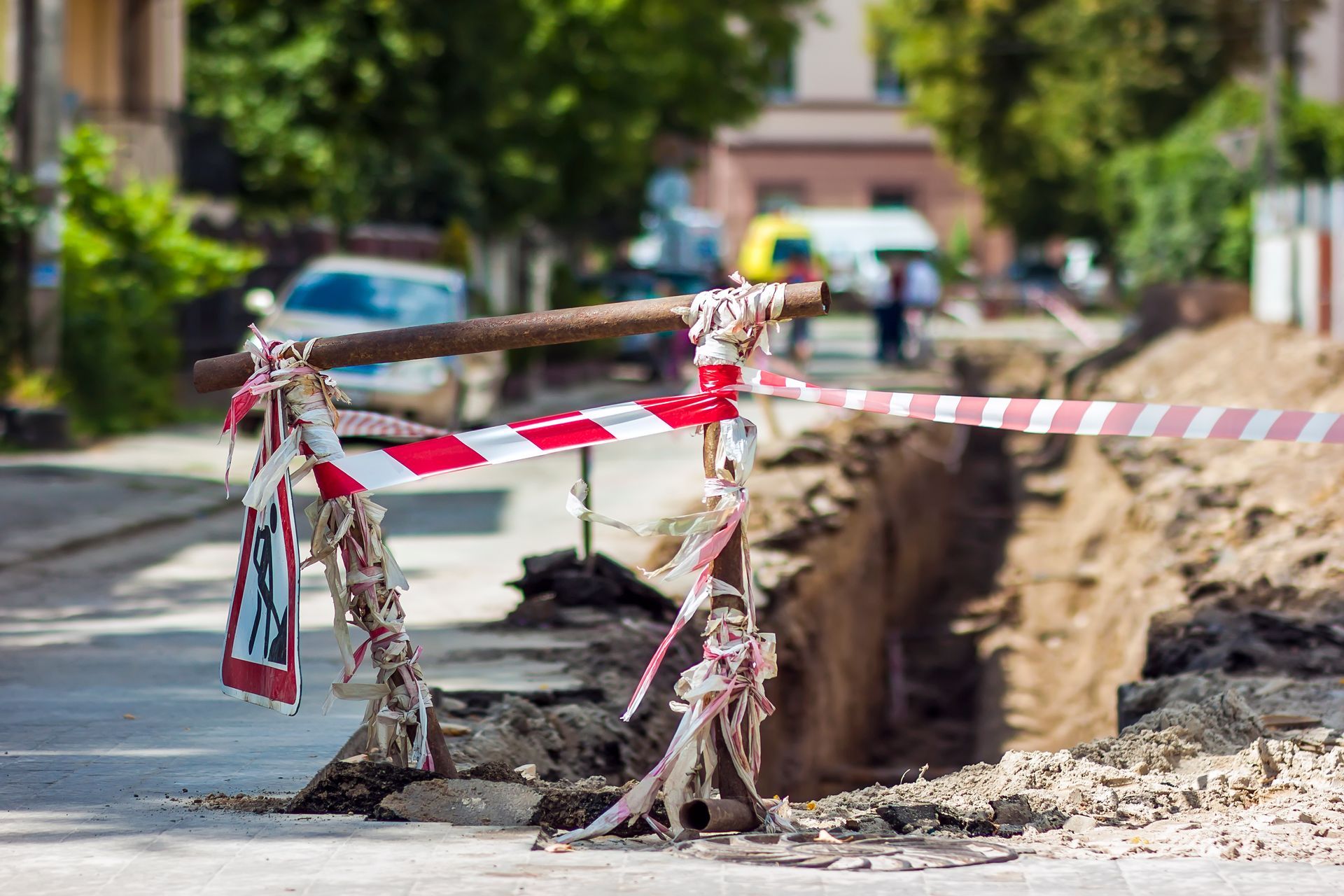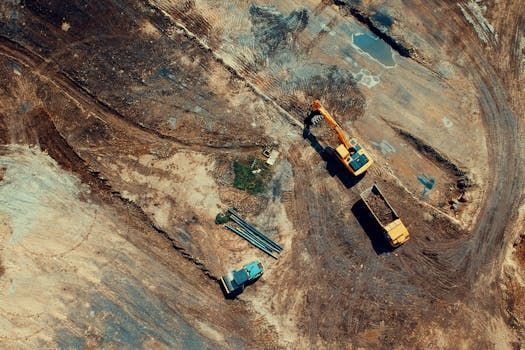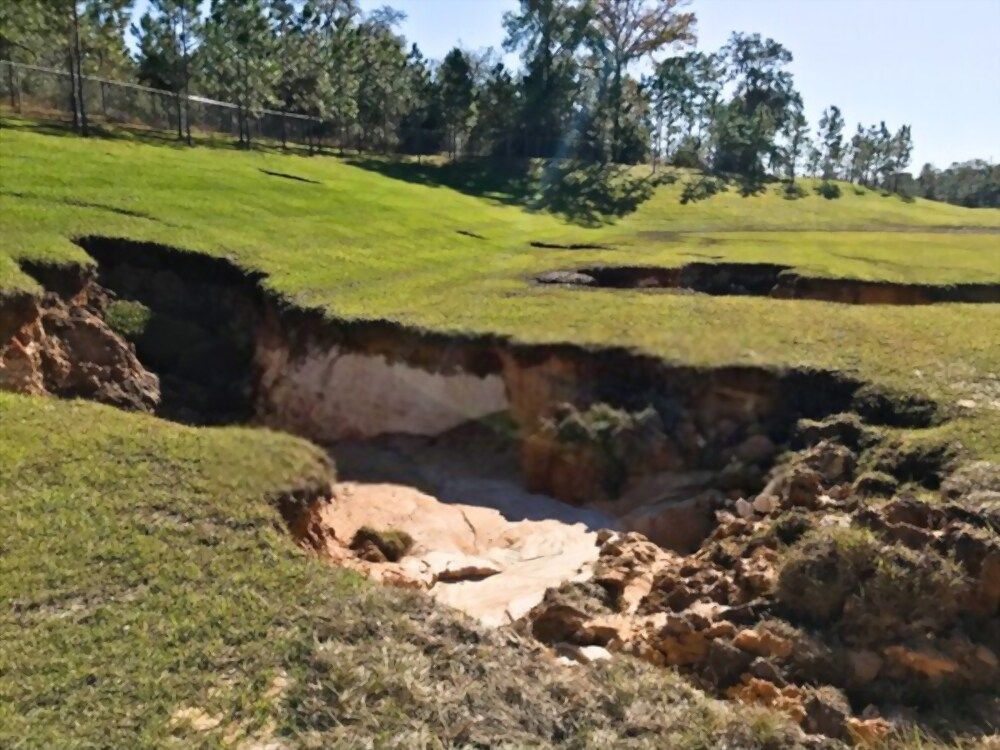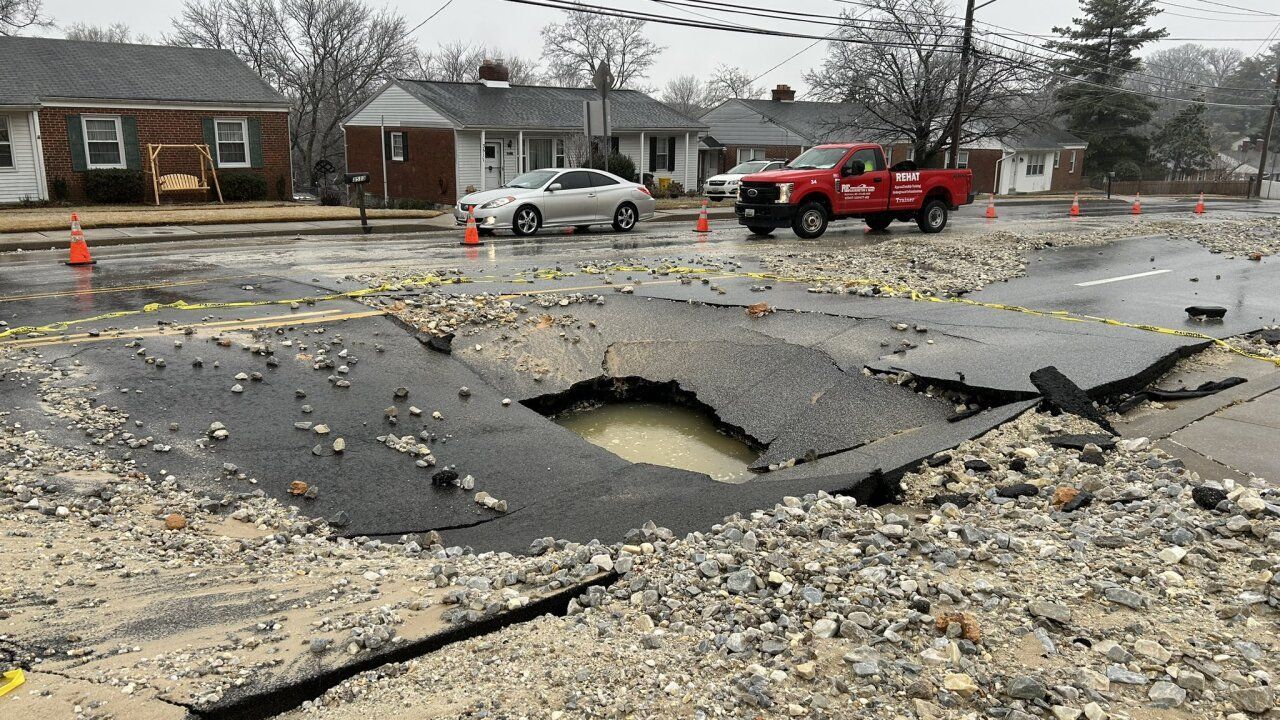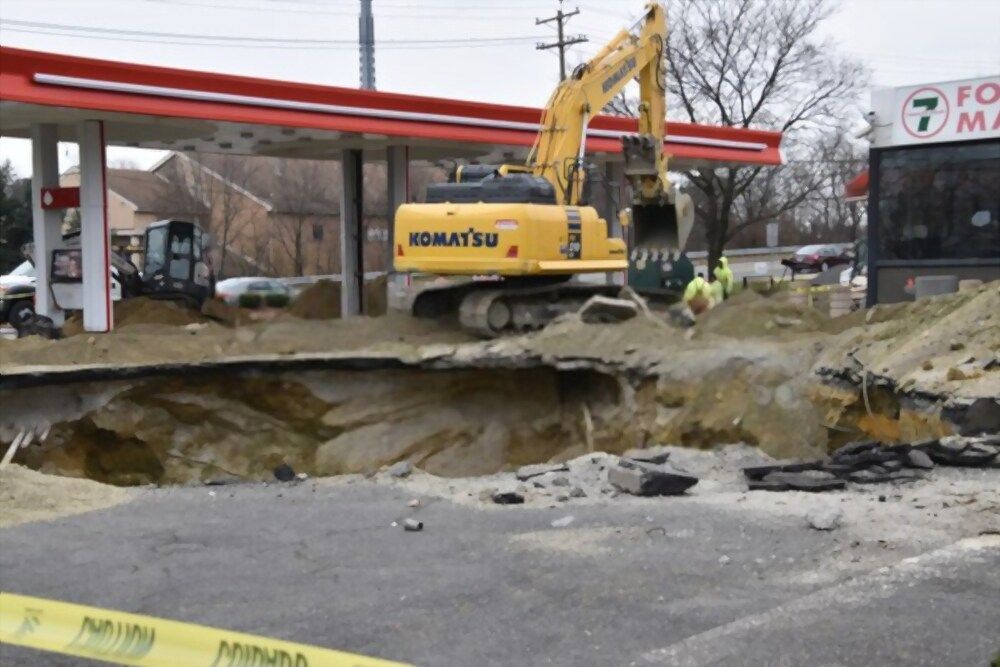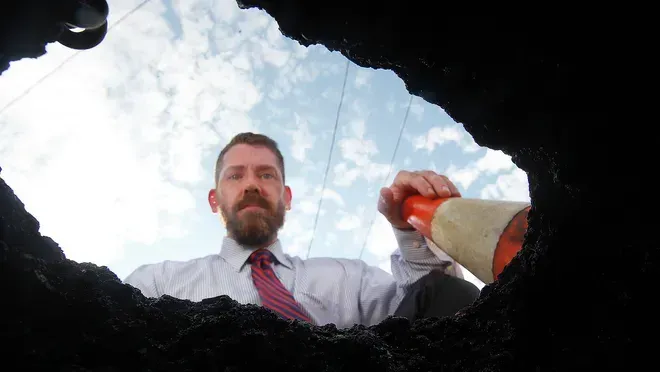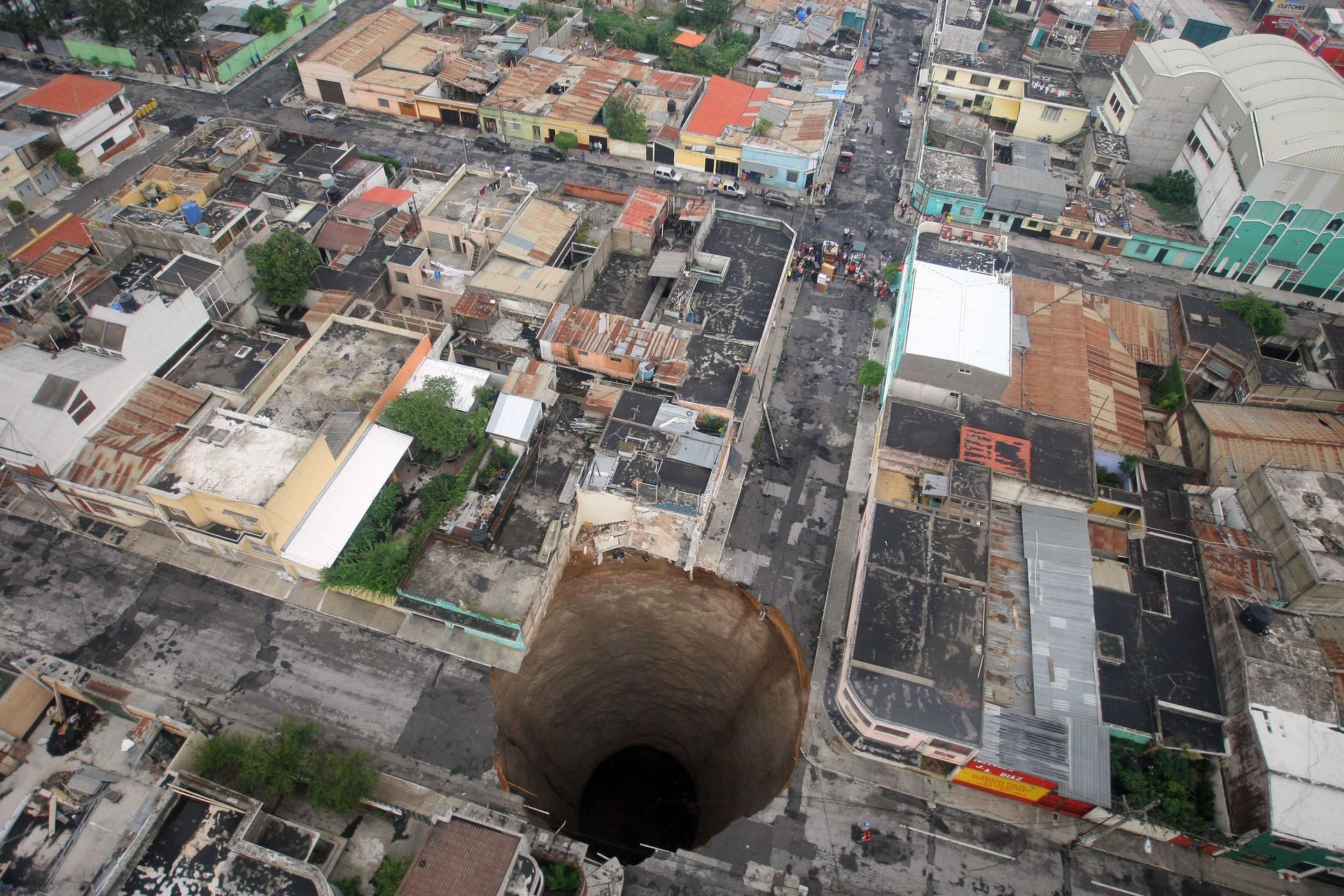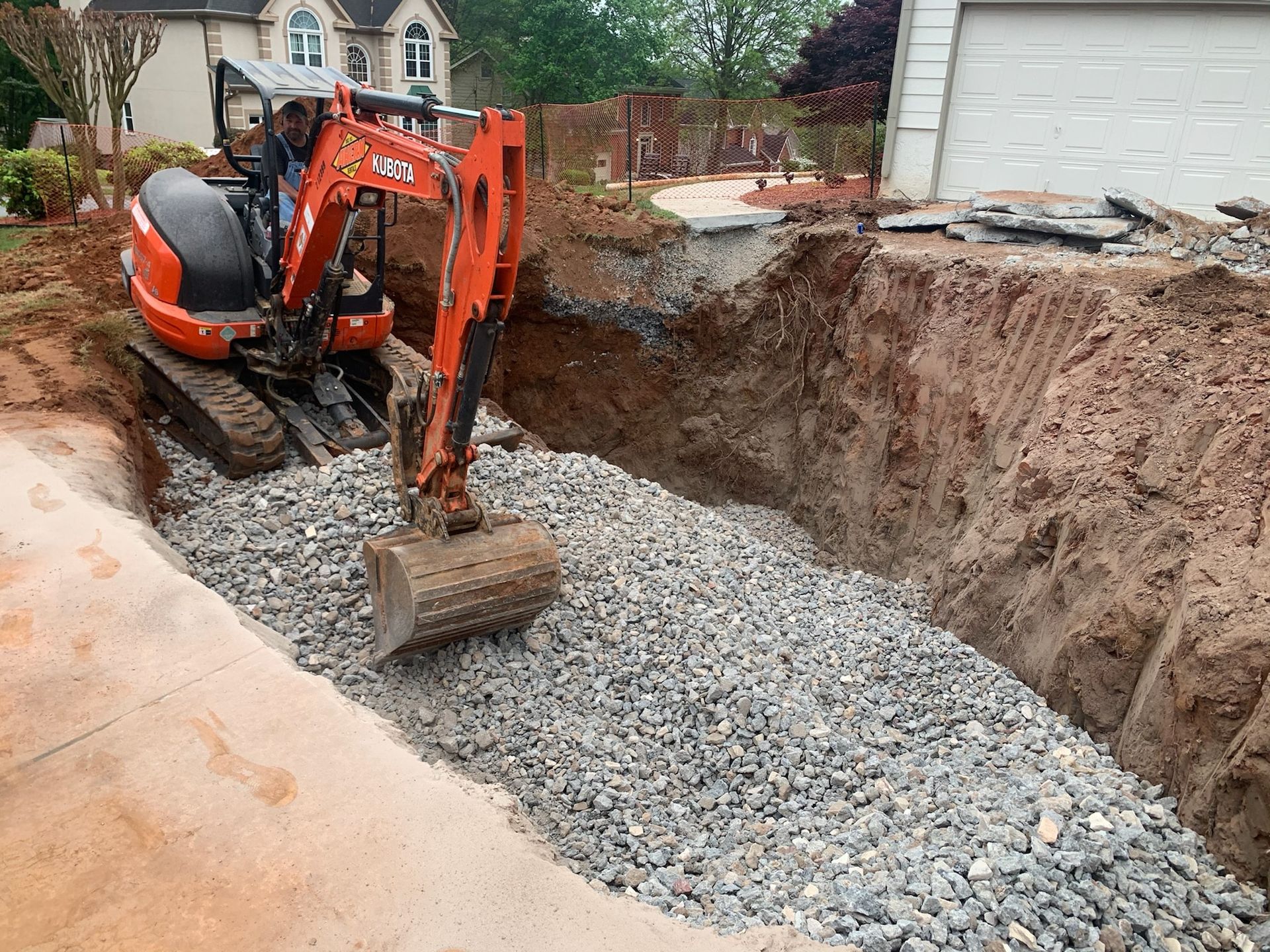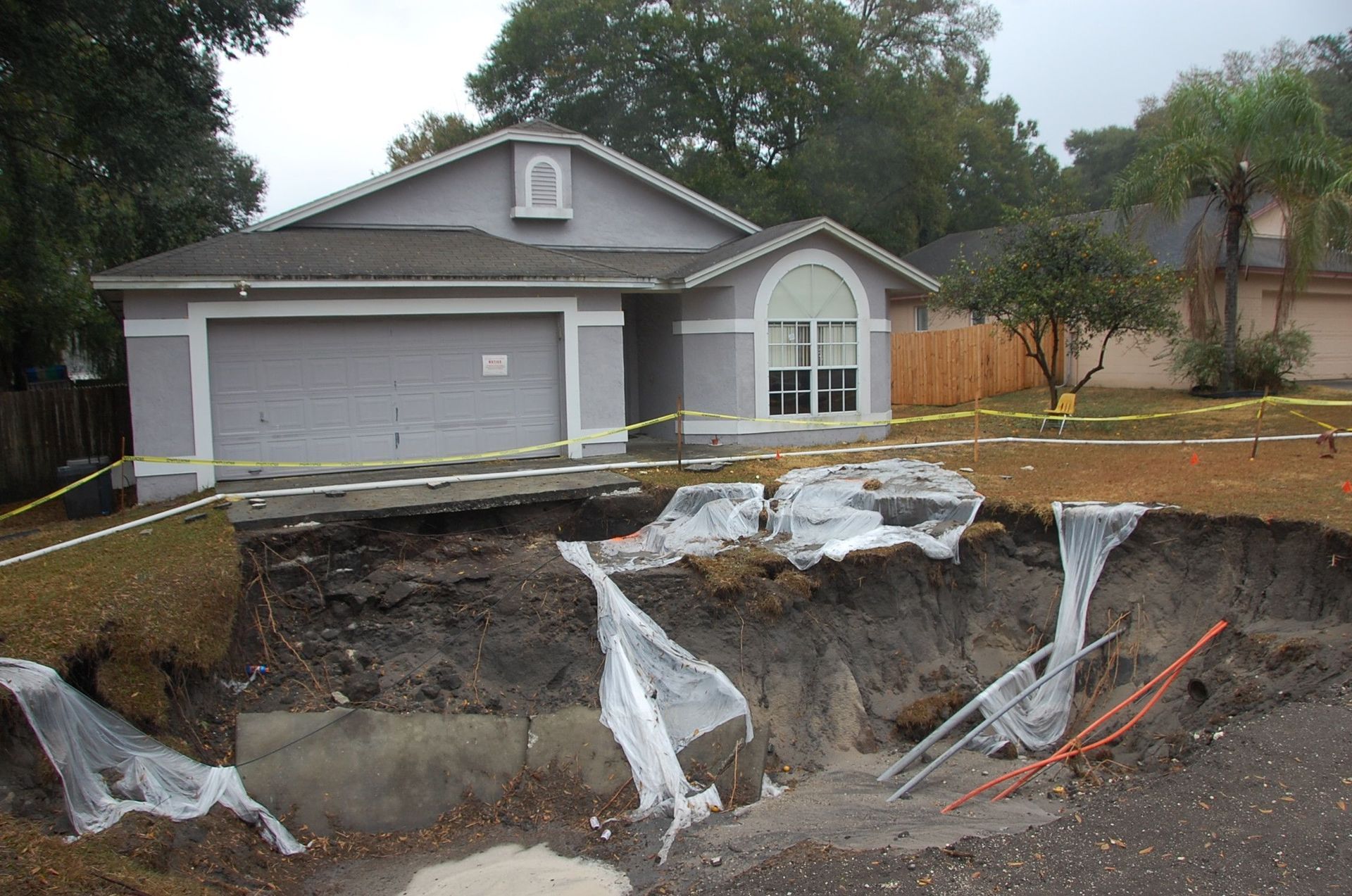How to Tell If a Sinkhole Is Forming on Your Property
TLDR;
If you notice sudden cracks in your walls or foundation, unexplained depressions in your yard, or leaning trees and fences, a sinkhole could be forming under your property. It’s critical to act quickly by contacting professionals like
Sinkhole Repair ATL to assess and mitigate any risk.
What Is a Sinkhole and Why Homeowners Should Be Concerned
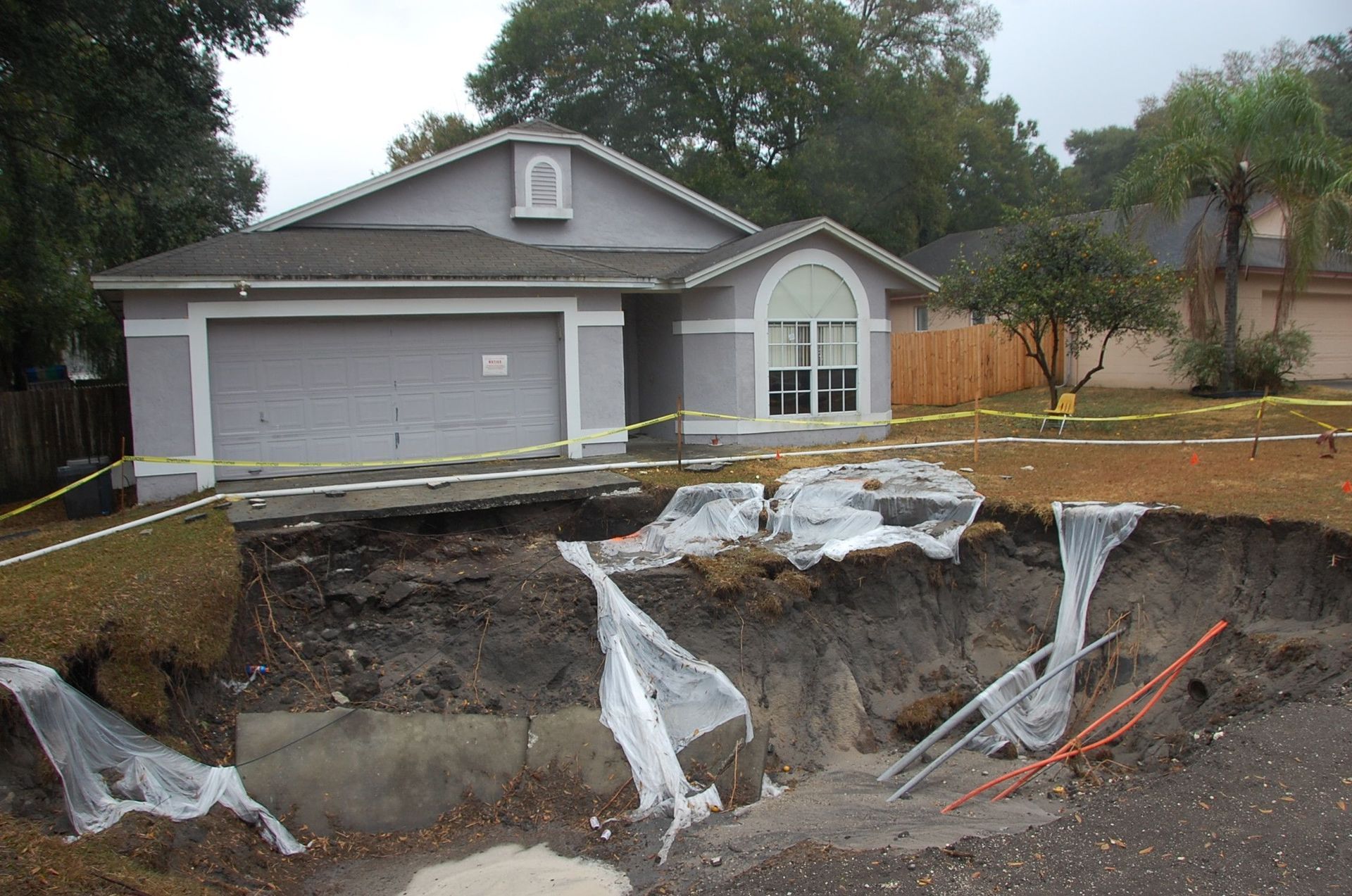
A sinkhole is a ground depression or collapse caused by the dissolution of bedrock (usually limestone) or by human activities that destabilize the soil. They can appear gradually or suddenly, depending on what causes sinkholes, sometimes swallowing parts of your property or even entire structures.
Homeowners should care because:
- Sinkholes can severely damage foundations, driveways, pools, and septic systems.
- They may pose safety risks to residents and pets.
- They often aren’t covered under standard home insurance unless specific coverage is in place.
Whether you're in Florida, Georgia, or another sinkhole-prone area, early detection is your best defense against costly repairs and danger.
Signs Your Property Might Have a Developing Sinkhole
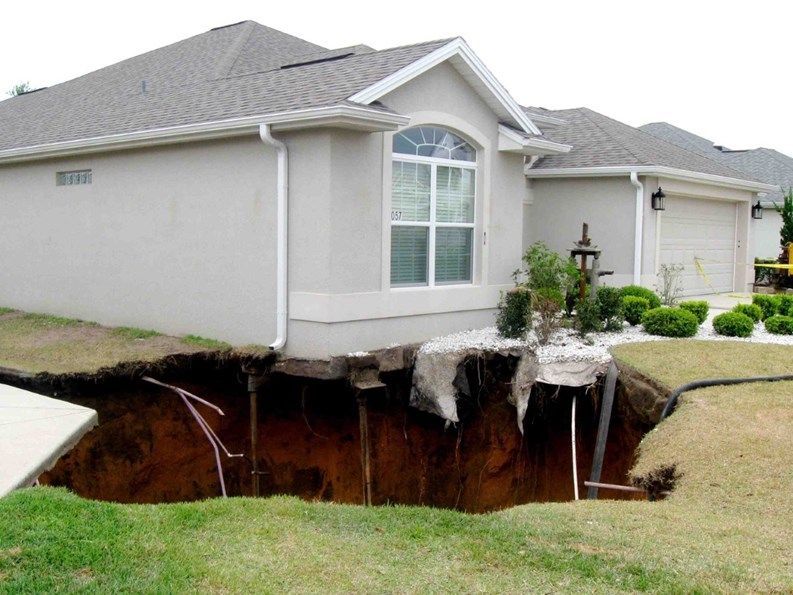
Recognizing the warning signs early can prevent serious damage. Here are the most common indicators:
Cracks in Foundation or Walls
Sudden or widening cracks in:
- Concrete slabs
- Brick walls
- Interior drywall
These might suggest shifting ground below your home.
Soft Spots or Depressions in the Ground
Be alert for:
- Spongy or soft areas in your lawn
- Circular patches where the ground feels unstable
- Shallow indentations forming with no clear reason
These could be signs of soil collapse beneath the surface.
Don’t wait for the ground to collapse
Schedule your free Inspection TODAY!
Sudden Changes in Water Drainage or Pooling
Pay attention to:
- New water pooling where none used to collect
- Areas where water now drains unusually fast
- Saturated ground after mild rain
This may indicate a cavity disrupting your soil’s ability to absorb water properly.
Slanted or Leaning Trees, Poles, or Structures
You might observe:
- Fence posts pulling away or tilting
- Trees leaning for no apparent reason
- Outbuildings or sheds becoming uneven
These point to ground movement, which often precedes a sinkhole.
Noises from Underground
Some homeowners report:
- Popping or cracking sounds from beneath the house
- Gurgling in underground pipes
These sounds could be a result of shifting soil or subsurface cavities.
Well Water Becoming Cloudy or Dirty
If you use well water:
- Sudden cloudiness may be caused by soil intrusion
- This is often a precursor to sinkhole collapse near the water table
Where Sinkholes Commonly Occur in the U.S.
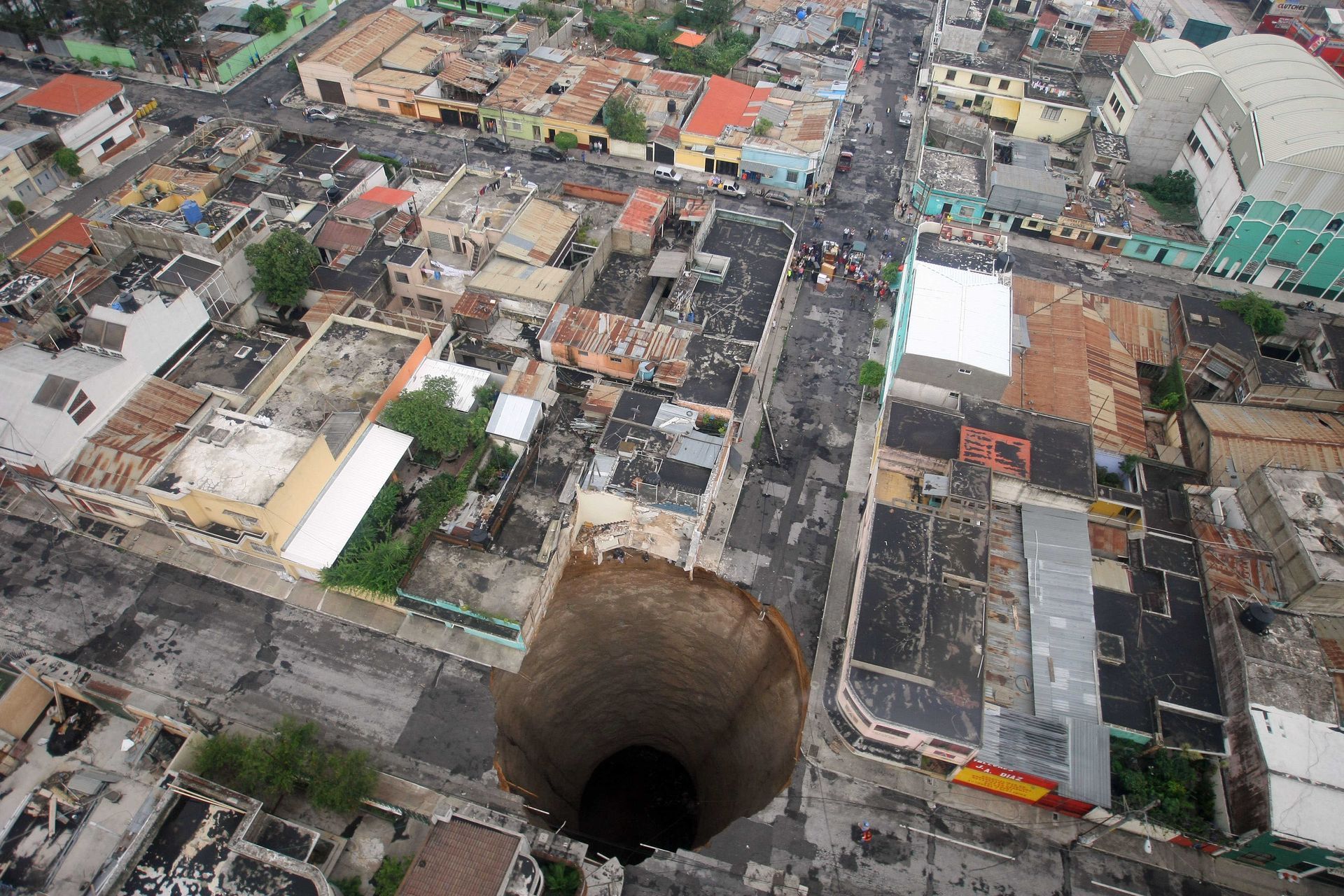
Some regions are more susceptible due to their geology, particularly areas with karst terrain—landscapes formed from limestone and similar soluble rocks.
High-Risk Sinkhole Zones:
- Florida: Especially central and west-central regions
- Georgia: Particularly the southern part and areas around Atlanta
- Texas: Including parts of Central Texas and San Antonio
- Kentucky, Tennessee, Pennsylvania: Known karst regions
If you live in or near these zones, you face a higher risk and should be especially alert to early warning signs.
Tip: Check your state’s geological survey for sinkhole risk maps.
Natural and Man-Made Causes of Sinkhole Formation
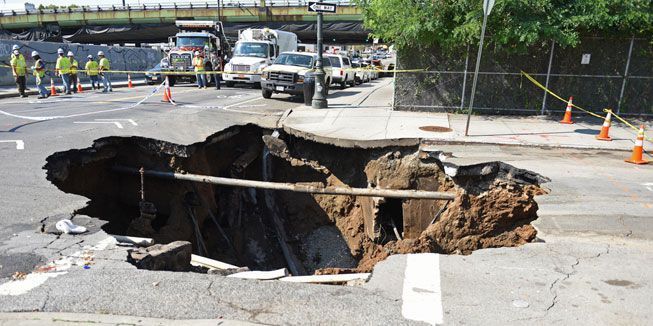
Sinkholes aren't just natural occurrences. Human activity often accelerates or initiates them.
Natural Causes:
- Erosion from groundwater dissolving limestone or gypsum
- Fluctuations in the water table (especially after heavy rain or drought)
Don’t wait for the ground to collapse
Schedule your free Inspection TODAY!
Man-Made Triggers:
- Excessive groundwater pumping
- Leaking septic tanks or sewer lines
- Poorly compacted fill after construction
- Old mines or underground infrastructure collapse
Knowing the cause can help determine the right repair strategy—something Sinkhole Repair ATL specializes in diagnosing.
How to Check for Sinkholes on Your Property
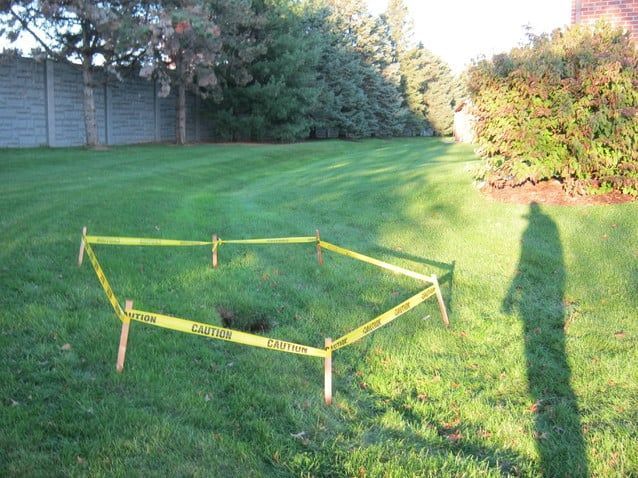
Not every dip in your yard is a sinkhole, but it’s wise to inspect regularly, especially if you’re in a risk zone.
DIY Sinkhole Checklist:
- Walk your property monthly and look for changes
- Use a tape measure to track crack width over time
- Try a spirit level on floors or slabs that feel uneven
- Photograph problem areas to compare over time
- Monitor your water bill for sudden spikes
If you detect multiple signs or worsening conditions, call a professional immediately.
Who to Call for a Sinkhole Inspection
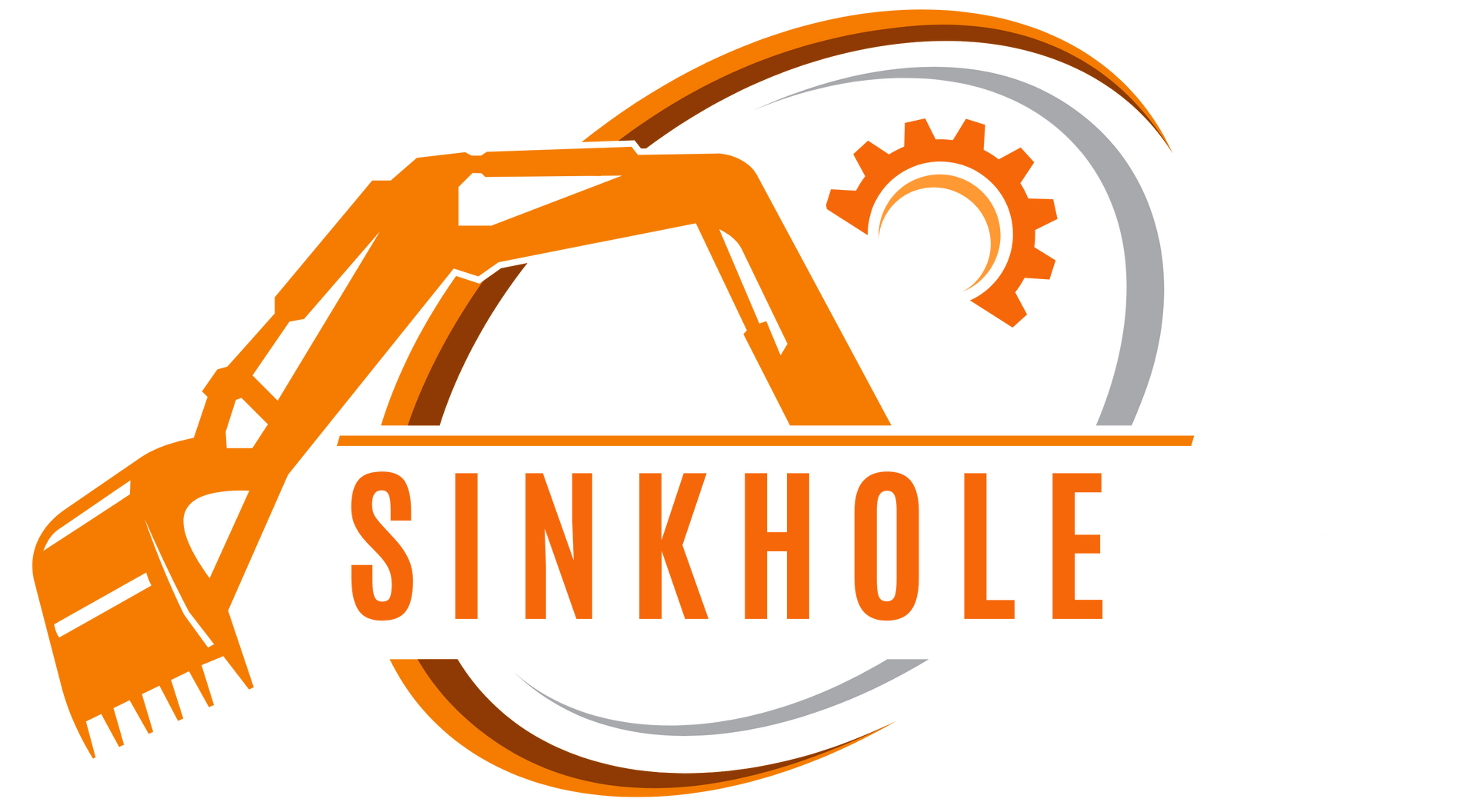
Not all contractors are qualified to assess sinkholes. Here’s who can help:
Geotechnical Engineer
- Provides detailed soil and subsurface analysis
- Can confirm sinkhole presence using imaging tools
Structural Engineer
- Assesses damage to buildings and recommends structural repairs
Ground-Penetrating Radar (GPR) Service
- Detects voids and subsurface changes without digging
Sinkhole Repair ATL offers access to qualified professionals for sinkhole inspection & detection, diagnosis, and repair using industry-standard technology and stabilization methods.
How to Prevent Sinkholes from Forming on Your Property
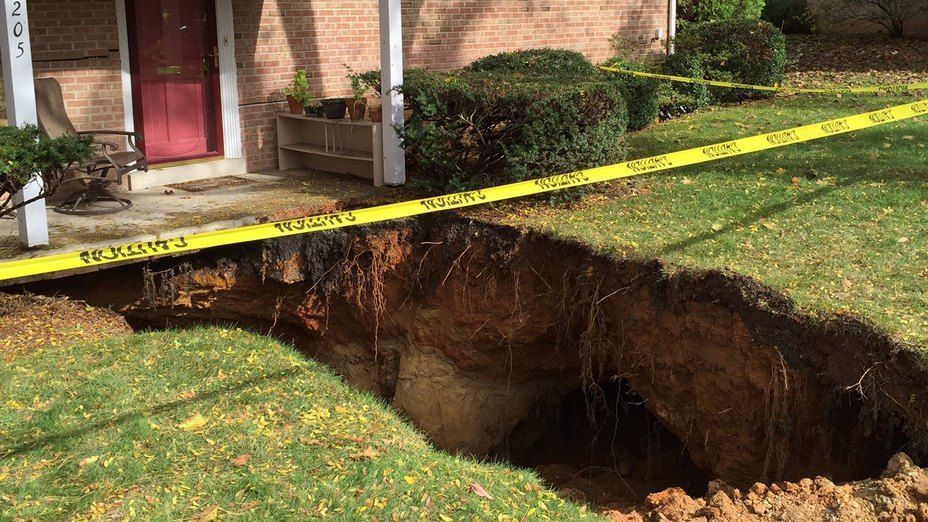
You can’t stop nature, but you can reduce your risk with proper property care.
Proactive Prevention Tips:
- Ensure proper yard grading to keep water away from your foundation
- Install downspout extensions to redirect rainwater
- Maintain your plumbing and septic systems regularly
- Avoid planting water-hungry trees too close to the house
- Use soil compaction methods during any landscaping or construction projects
Sinkhole Repair ATL can assess your property and provide soil stabilization and other preventive solutions that are cost-effective and long-lasting.
Don’t wait for the ground to collapse
Schedule your free Inspection TODAY!
Does Homeowners Insurance Cover Sinkhole Damage?
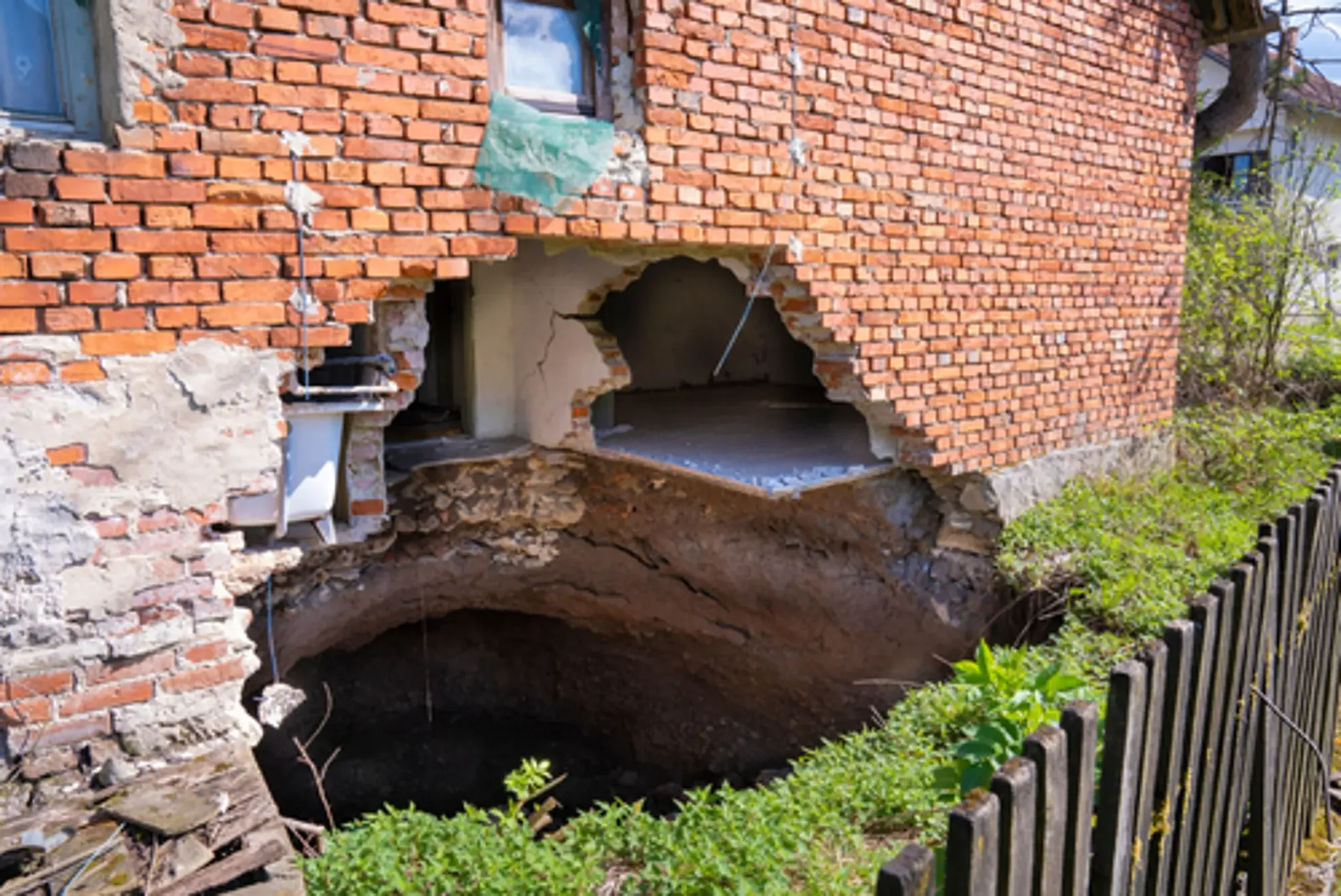
Coverage varies widely by state and policy. Many standard policies do not include sinkhole damage unless you purchase a separate rider.
Key Insurance Terms to Know:
- Catastrophic Ground Collapse: Covered under some policies but has strict criteria
- Sinkhole Endorsement: Adds specific sinkhole coverage to your policy
- Exclusions: Cracks or minor damage may not meet claim thresholds
Check your policy carefully. If needed, speak to your insurer about adding coverage. After a confirmed sinkhole event, take detailed photos, document all signs, and file a claim promptly.
What to Do Next If You Suspect a Sinkhole
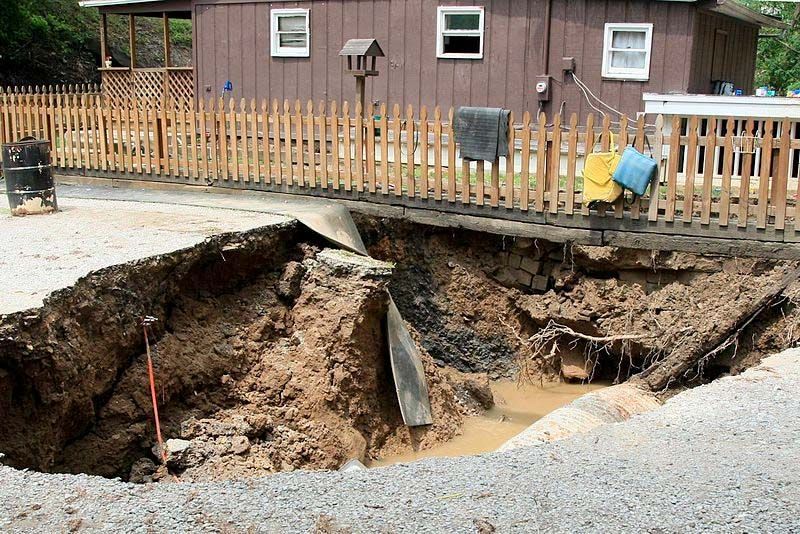
If you believe a sinkhole may be forming on your property:
- Don’t ignore the signs. Document everything—cracks, soft spots, changes in water patterns.
- Stay away from visible depressions. The ground could give way unexpectedly.
- Call a professional. Sinkhole Repair ATL offers fast and reliable
sinkhole repair services to inspect and stabilize your property safely.
- Inform your insurance company. Especially if you have a sinkhole endorsement.
- Notify local authorities if the sinkhole poses a public safety risk.
Delaying action can make the damage worse. The faster you respond, the better your chances of a successful and affordable repair.
